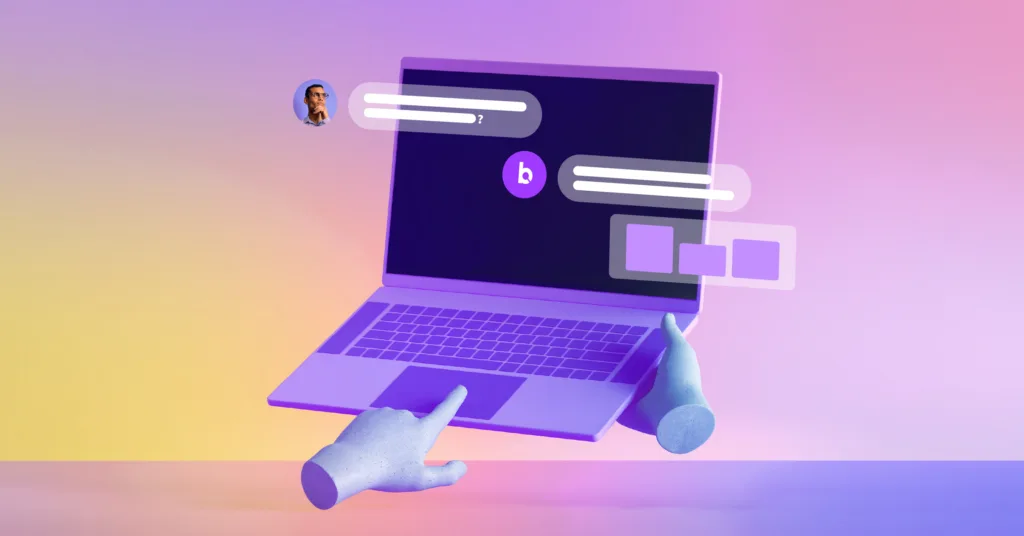By Adrien Menard, CEO and Co-Founder, Botify
The organic search industry has always evolved alongside new trends and technologies. The recent integration of generative AI, like ChatGPT into Microsoft’s Bing is no exception. However, with it has come significant disruption to the way brands and their content are found online – leaving many scratching their heads as to how to keep pace with this fluid and rapidly-changing landscape.
The integration of Bing and ChatGPT has, in the words of Microsoft’s CEO, Sataya Nadella, ‘made Google dance’. The first-of-its-kind integration brought broader recognition to a field where Google has long been recognised as the majority market share leader.
But commentary around ChatGPT has been mixed. Most of it has been speculative, some of it alarmist, and a lot of it focusing on the accuracy, absurdity, or ethical concerns presented by some of ChatGPT’s responses.
In response, Google made its own mark in the era of AI, with the launch of its proprietary generative AI tool, Bard. But in the rush to respond quickly, Bard wasn’t quite ready and in its first demo made factual errors responding to questions. Bard’s responses to search requests resulted in incorrectly stated facts.
Despite this misstep, Google just announced plans for a revised search engine, Magi, which would learn what users want to know based on what they are searching when they begin using it.
AI-powered search
Much like web-based search, AI-empowered search rewards quality and relevant content with organic findability—sifting, selecting, and serving only the most helpful responses to queries. Not only is quality and relevance of content a benchmark to findability, technical optimisation also plays an important role as recent research found that almost two-thirds (62%) of consumers hold more trust in a brand based on their experience on the website.
Large Language Models, like ChatGPT, work by studying the internet rather than crawling it in real-time, which is what happens with classic web-based search. This means instead of getting up-to-date content, you’re given a ‘snapshot’ of web results with a date stamp of early 2021.
‘Classic’ web-based search provides users with results based on their search terms or phrases. ‘Classic’ web-based search provides users with link-based results stemming from their search terms or phrases. Traditionally, these links are ranked in order of greatest relevance, which in turn, affords content creators with a better understanding of what content is resonating and serves users through informed organic search strategies.This in turn affords content creators with a better understanding of what content is resonating and serves users through informed organic search strategies.
The integration of generative AI brings the industry to a critical point: brands must be regularly updating their content and raising their game to ensure they serve all organic search interfaces. Websites are core to brand discovery in today’s digital world, and if brands aim to maximise the likelihood of their content being featured and ranked higher in results–be it generative or web-based search results—now is the time to place emphasis on site health, content accuracy, and well-cadenced relevancy.
ChatGPT and organic search insights
Generative AI tools aren’t just changing the way we search, they’re also revolutionising the marketing and creative industries.
Though there are fears AI is going to steal jobs, our research found that 90% of British SEO professionals say AI tools are actually advancing their career. To meet this acceptance, we’ve developed various features across our platform that harness the power of GPT-4 technology to help organic search marketers and content writers analyse, decide, and implement their ideas with a deeper level of analysis and insight. This allows them to uncover opportunities and optimise content with greater precision, driving greater success in organic findability.
Our new Chat-GPT assistant not only helps users find information amid over 1,000 data points by asking simple questions in plain text, but delivers tailored recommendations for enhancing page titles and meta descriptions of the most strategic landing pages, driving both sustained visibility and brand authority.
It also empowers non-expert users by allowing them to ask for the data they need without the need for complex queries or filters unlocking the power of SEO and search for everyone.
Organic search is already capable of generating three times more return than traditional advertising campaigns. The added AI acceleration between the points of input to outcome, when, where and how a brand shows up in results will determine how a web page builds trust, and ultimately authority, among customers.
In this world of continuous AI innovation in search, brands must not only learn to navigate this new technology, but master it to optimise their online presence.










